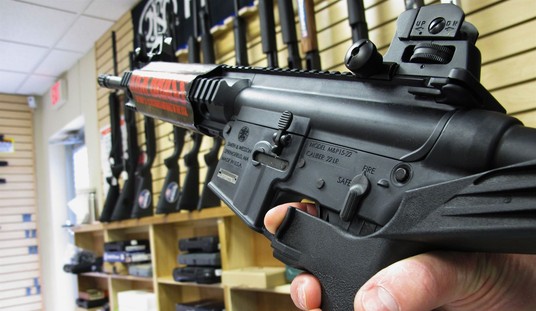A new study in the Journal of the American Medical Association reveals the rate of "red flag" petitions and approvals is far lower in Colorado counties that have declared themselves Second Amendment sanctuaries; good news for gun owners but something that's sure to alarm the gun-grabbers.
According to the authors of the study, there were 338 Extreme Risk Protection Order petitions filed in Colorado between 2020 and 2022, but only about 37 percent were filed in counties that had declared themselves Second Amendment sanctuaries. That's not particularly surprising given that many of those counties are rural and don't have a huge population base compared to Denver and the surrounding counties. We'd expect more petitions to be filed in places where there are more people, but the authors also note that the rate of approvals is far lower in 2A sanctuaries than it is in non-sanctuary counties.
Of a total 338 ERPOs filed in Colorado, 126 (37.3%) occurred in 2A sanctuaries. Sixty-one of these 2A petitions were granted emergency orders, and 40 were full 1-year ERPOs after a hearing. Forty ERPOs (31.7%) were petitioned for by law enforcement. Petitions in non-2A counties were more likely to have been filed by law enforcement (138 of 227 [64.9%] vs 40 of 126 [31.7%]; P < .001) and to have had an emergency order granted (177 of 227 [78.0%] vs 61 of 126 [48.4%]; P < .001) than in 2A sanctuaries. Qualitative analysis of cases in 2A sanctuaries revealed common aggravating risk characteristics, including respondents experiencing hallucinations, histories of police interaction, and substance misuse. ERPOs have been granted in 2A sanctuaries against individuals threatening all forms of violence we abstracted for (themselves, others, and mass violence).
The authors infer that there's a problem in the 2A sanctuaries that's making them less likely to approve these petitions, but there's a counter-argument to be made that non-sanctuary counties are approving too many ERPO requests. Emergency petitions are granted in nearly 80 percent of cases filed in non-2A sanctuaries, while less than half of those emergency petitions are approved in counties where local lawmakers have adopted resolutions in support of our right to keep and bear arms.
The study's authors are clearly supportive of "red flag" laws, which they believe are "a promising suicide prevention tool" as well as a way to prevent acts of violence against others. In their view, the more petitions the better. While the authors offer up a smattering of cases where ERPO petitions were granted for various reasons, they inexplicably neglected to include any cases where petitions were rejected by a judge, even though that's what happens more than 50 percent of the time in "temporary" petitions filed in 2A sanctuaries.
Is it possible that judges are rejecting some or all of the petitions that come before them because they believe "red flag" laws are unconstitutional? Absolutely. In fact, I hope that's the case. But it could also be that judges in these counties are less willing to take the claims of petitioners at face value than their more urban counterparts, who are approving almost every ERPO request that comes before them.
Besides support for the right to keep and bear arms, there may be another reason why the rate of "red flag" petitions is lower in these counties: law enforcement and family members are choosing to address the dangerousness of the individual rather than simply trying to take away their ability to purchase and possess a firearm.
Additionally, several cases were identified in which temporary orders were granted, but year-long ERPOs were not pursued in favor of other civil protection orders, which can be more restrictive than ERPOs by prohibiting all forms of contact, last at least 2 years, and can become permanent in certain circumstances. It may be possible that similar courses of action are pursued in non-2A sanctuary jurisdictions, but it may also be possible that more general restraining orders are preferred in areas where ERPOs are more politically controversial.
We're told all the time that "red flag" laws address gaps in the law that allow dangerous people access to firearms, but the truth is that every state in the country has a civil commitment law on the books that can be utilized. Unlike "red flag" laws, civil commitment laws involve a mental health evaluation and, if necessary, treatment for the individual in question. If the concern is about the dangerousness of any particular individual, that's a much better approach than saying they can't buy a gun but they can go and purchase a machete if they'd like.
"Red flag" laws aren't about mental health. They're about guns, and I'm pleased to see that law enforcement in Colorado's Second Amendment sanctuaries appear to understand the difference.









Join the conversation as a VIP Member